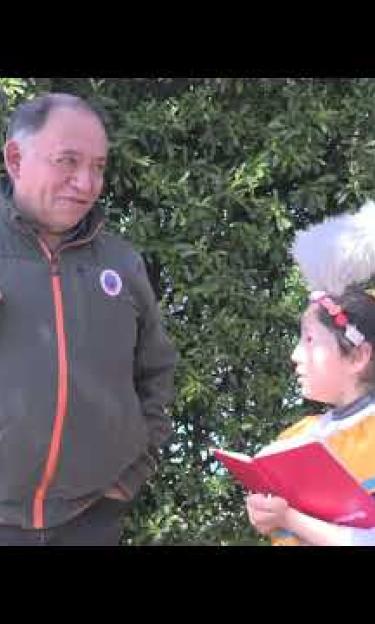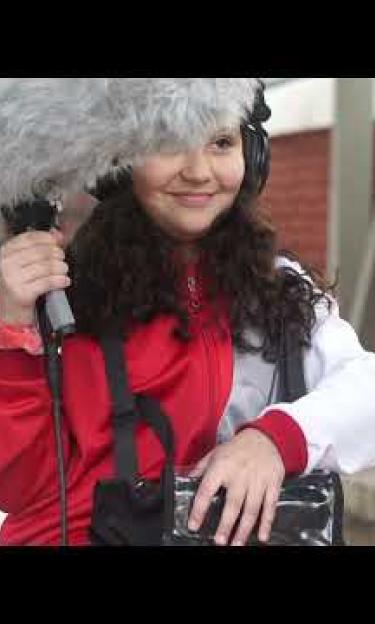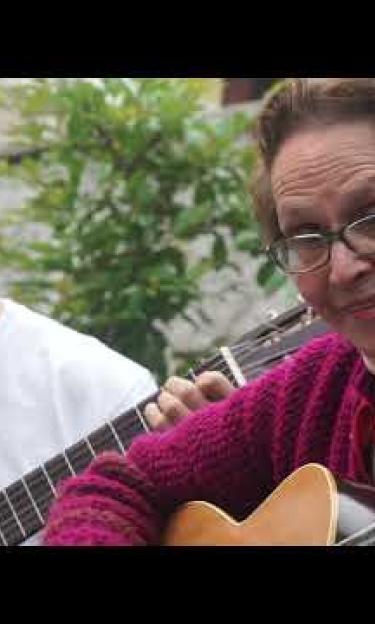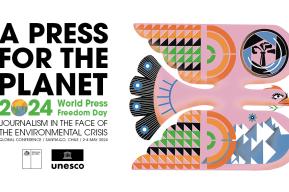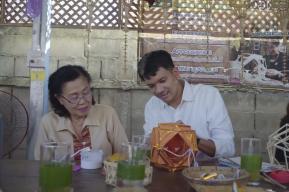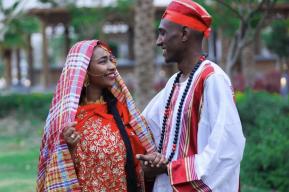News
UNESCO premieres in Chile the documentary about oral tradition: 'The Songs My Grandmother and Grandfather Sing to Me'
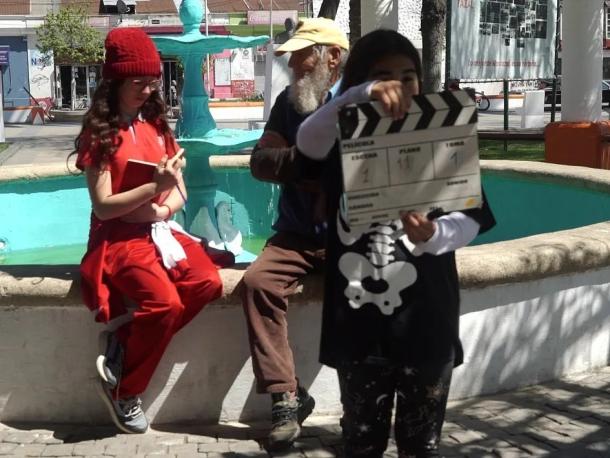
To raise awareness about the importance of protecting and safeguarding Intangible Cultural Heritage, the Chilean office of the United Nations Educational, Scientific and Cultural Organization (UNESCO), together with the Olivo Foundation, presented an audiovisual piece created by a group of students from the commune of San Francisco de Mostazal (O'Higgins Region). In it, they compile part of the oral tradition, through songs typical of their area.
On the occasion of the twentieth anniversary of the Convention for the Safeguarding of Intangible Cultural Heritage and as an initiative of UNESCO Santiago, the Olivo Foundation funded the implementation of a documentary development project with students about the rural oral tradition in San Francisco de Mostazal. It premiered on December 7, 2023, at the Municipal Theater of the town
The production, titled 'The Songs My Grandmother and Grandfather Sing to Me,' was directed by filmmaker Felipe Correa, a member of the Social Development Center for Cinema, Gaticine. It was carried out by boys and girls aged 9 to 14, all students of the Teresiano School of Mostazal.
The documentary features a collection of songs that are part of the oral tradition, preserved by some elderly members of San Francisco de Mostazal, known as 'cultores,' for their role in preserving intangible cultural heritage.
Many of the songs belong to the genre of 'canto a lo divino y lo humano,' typical of rural music, and were transmitted by the cultores to the group of students involved in the creation of the film.
Throughout the documentary, we see the students traveling around their town with cameras and microphones, searching for traditional melodies and preserving a way of community building that is at risk of disappearing: the rural oral tradition.
The goal of these activities was to highlight the importance of this oral tradition as a heritage expression. The aim was to sensitize the documentary's audiences and the children themselves to recognize the importance of protecting and safeguarding Intangible Cultural Heritage.
One of the cultores involved in the project, Ruperto Soto, who works at a local radio station in San Francisco de Mostazal, shared why he contributed: 'I have been singing since I was a child, because my aunts and my mother taught me all those songs, my friends too, and I went out to collect songs in the countryside, here in San Francisco, so I have many,' he says.
'The importance of this project is to recover songs that are no longer sung, that people have not learned. Participating in the documentary was a life lesson and showed that when the school's direction supports the students, everything turns out well,' adds Soto.
After the premiere of the documentary, Pilar Vicuña, culture coordinator at UNESCO Santiago, commented on the relationship between the project and the 2003 Convention for the Safeguarding of Intangible Cultural Heritage: 'As part of the mandates of the Convention is the issue of transmitting knowledge and skills that are part of the culture and identity of peoples. Intergenerational transmission is fundamental for the preservation of this knowledge, because as most of it today is carried by older people, we run the risk of losing it over time, of it not being known, and with that, we would lose part of our wealth and cultural diversity. In this sense, a project like this very well fulfills one of the objectives of the Convention.'
For her part, María Luisa Vergara, coordinator of the culture area of the Olivo Foundation, referred to the difficulties of preserving oral traditions, such as songs: 'One of the biggest challenges is how to preserve these traditions in a context where there is a lot of information and many other elements intervene in everyday life, hand in hand with technology (...) and the access that exists to other stimuli and other things happening in the world, from anywhere, through the phone and internet access, which can also be an opportunity, because it allows recording and making known these traditions. Local traditions coexist with access to global culture,' she emphasized.
Vergara also highlighted that the opinions and work of the children were included at all levels of the documentary's production.
Intangible Cultural Heritage is understood to be that which includes 'living traditions or expressions inherited from our ancestors and passed down to our descendants, such as oral traditions, performing arts, social practices, rituals, festive events, knowledge and practices concerning nature and the universe, and knowledge and techniques related to traditional craftsmanship'



